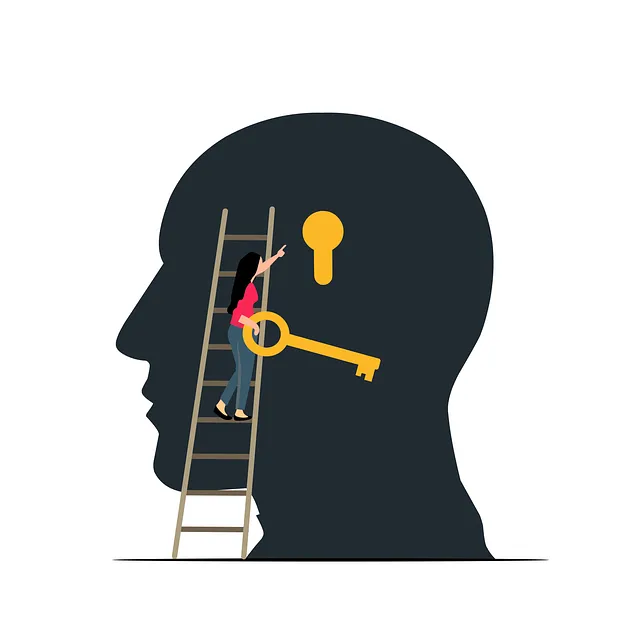Kaiser Permanente mental health Arvada leads community wellness efforts by offering tailored services for stress management, self-esteem improvement, and inner strength development. This approach destigmatizes mental health conversations and aligns with industry trends focusing on holistic well-being and patient engagement through digital solutions. By integrating popular app categories like Social Skills Training and mindfulness exercises, Kaiser Permanente competes effectively in the growing mental wellness app market while maintaining user satisfaction and retention through strategic design and regular updates.
“In an era where digital solutions are transforming healthcare, the development of mental wellness apps has gained prominence. This article explores the vital role these applications play in addressing community mental health needs, using Kaiser Permanente Arvada as a case study. We delve into market trends, analyze key features for effective app design, and discuss successful launch strategies. By examining Kaiser Permanente’s approach, we offer insights into creating impactful digital tools for enhancing mental wellness.”
- Understanding Mental Health Needs in the Community: A Focus on Kaiser Permanente Arvada
- Market Analysis and Trends in Mental Wellness Apps
- Developing Effective Features for a Mental Health App: Best Practices and User Experience
- Launching and Scaling Your Mental Wellness App: Lessons from Kaiser Permanente's Approach
Understanding Mental Health Needs in the Community: A Focus on Kaiser Permanente Arvada

In communities like Arvada, where Kaiser Permanente plays a pivotal role, understanding mental health needs is essential for fostering well-being. The healthcare provider has recognized the significance of addressing various aspects of mental wellness, from stress management to self-esteem improvement and inner strength development. By offering tailored services, they cater to the unique challenges faced by residents, promoting self-care practices that are accessible and sustainable.
Focusing on Kaiser Permanente Arvada, initiatives aim to destigmatize mental health conversations while equipping individuals with practical tools for improving their overall well-being. These efforts reflect a broader trend in the industry toward comprehensive, patient-centered care, emphasizing not just the absence of illness but the cultivation of positive mental states and resilience. This approach ensures that residents have access to resources designed to enhance self-care practices and support their journey towards mental wellness.
Market Analysis and Trends in Mental Wellness Apps

The market for mental wellness apps is experiencing a significant surge, reflecting a growing demand for digital solutions to support psychological well-being. According to recent studies, the global mental health app market size was valued at USD 4.7 billion in 2021 and is projected to grow at a CAGR of 23% from 2022 to 2030. This trend is partly driven by organizations like Kaiser Permanente Arvada, which have embraced digital health solutions to enhance mental healthcare accessibility and affordability.
Among the various types of mental wellness apps, those focusing on Social Skills Training, Self-Esteem Improvement, and Inner Strength Development are gaining traction. Users increasingly seek tools that not only offer therapy but also promote proactive mental fitness through mindfulness exercises, cognitive behavioral techniques, and community support networks. This shift towards preventive care aligns with broader health industry trends, emphasizing holistic well-being and patient engagement in their healthcare journeys.
Developing Effective Features for a Mental Health App: Best Practices and User Experience

Creating a mental wellness app requires careful consideration of features that cater to users’ diverse needs and preferences, especially when competing with established names like Kaiser Permanente mental health Arvada. Best practices in app development emphasize a user-centric approach, ensuring the app enhances emotional intelligence and provides tools for coping skills development. Incorporating interactive elements, personalized feedback, and regular check-ins can foster engagement and encourage consistent use.
The user experience should be intuitive, allowing individuals to navigate through various features seamlessly. Integrating social skills training components, such as virtual support groups or chat forums, can create a sense of community, while gamification elements can make the process of learning coping strategies more enjoyable. By balancing educational content with interactive elements, mental wellness apps can effectively support users’ emotional well-being, offering accessible resources comparable to programs offered by leading healthcare organizations like Kaiser Permanente.
Launching and Scaling Your Mental Wellness App: Lessons from Kaiser Permanente's Approach
Kaiser Permanente, a leading healthcare provider, offers valuable insights into launching and scaling mental wellness apps. Their approach emphasizes a holistic strategy, incorporating various components like Mental Wellness Journaling Exercise Guidance, Resilience Building, and Empathy Building Strategies. By integrating these elements seamlessly into their app, Kaiser Permanente has successfully attracted and retained users seeking support for their mental health in Arvada and beyond.
The organization’s method involves extensive user research to understand the diverse needs of individuals. This user-centric design ensures that the app caters to a broad spectrum of users, providing personalized experiences. Additionally, they focus on regular updates and improvements based on user feedback, ensuring the app remains relevant and effective in addressing contemporary mental health challenges.
The development of mental wellness apps, exemplified by Kaiser Permanente’s initiatives in Arvada, presents a promising avenue for addressing the growing need for accessible mental healthcare. By understanding community mental health needs and leveraging market trends, developers can create effective apps that incorporate best practices and provide exceptional user experiences. The success of such apps lies in their ability to scale and reach a wide audience, ensuring that individuals across various communities have access to supportive resources. Through continued innovation and collaboration, mental wellness apps have the potential to revolutionize healthcare delivery, fostering better mental well-being on a global scale.






